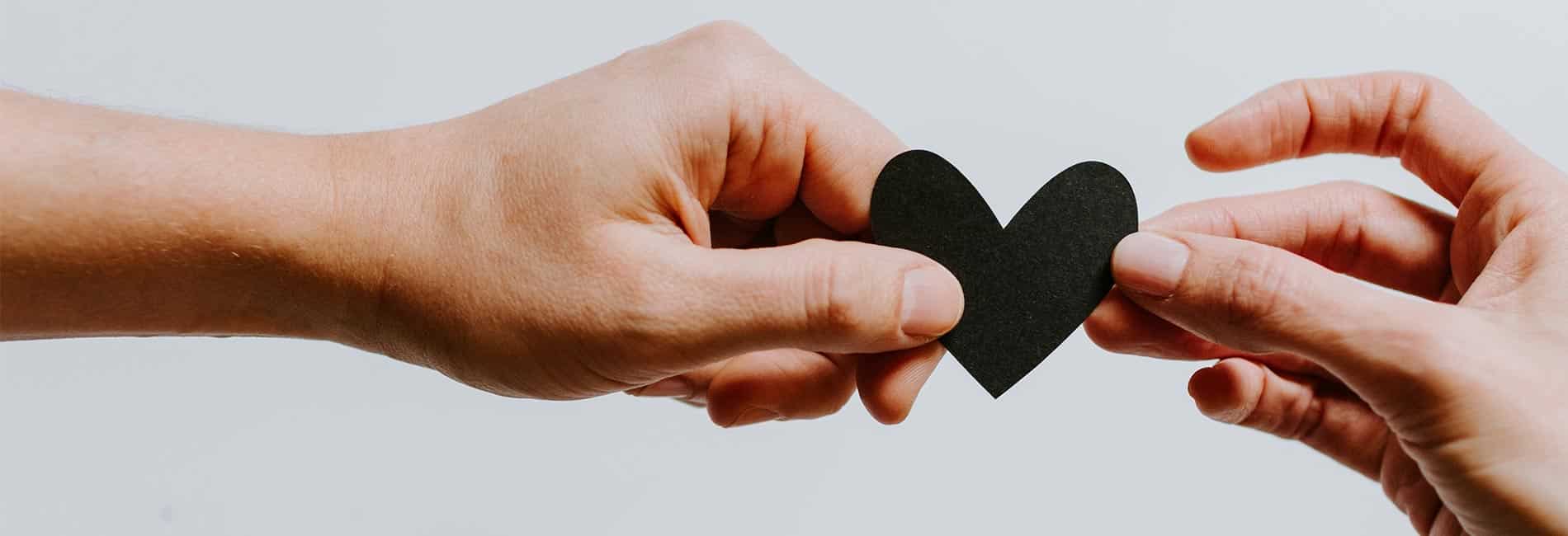
Breaking the Cycle:
How to Heal Toxic & Unhealthy
Teenage Relationships
Are you concerned about your teenager's unhealthy relationships? Are they struggling with toxic relationships? It's never too late to help your teenager break free and start on a path toward healing and healthy relationships. Empower your teen with the help of wilderness therapy and start their journey towards a brighter future today.
Take our teen assessment and see if a wilderness therapy program is right for your family.
Teenagers are at a critical stage in their development, and unhealthy relationships can have a lasting impact on their future. It can be difficult for teenagers to break free from toxic relationships and gain the skills needed to form healthy relationships that last throughout their life. In this article, we'll discuss the signs, types and causes of unhealthy relationships as well as treatment options to help your teen overcome these challenges.
Types of Unhealthy Teenage Relationships
Navigating the teenage years can be a challenging time for both parents and teens, as emotions run high and the need for independence and self-expression can clash with adult authority and expectations. Understanding the signs and causes of unhealthy teenage relationships can help parents and teens alike find healthy and effective ways to manage these feelings and maintain a positive and supportive family dynamic.
There are several types of unhealthy teenage relationships that can be damaging to the emotional and psychological well-being of the individuals involved. Here are some examples:
Controlling relationships:
A controlling partner may manipulate or pressure their significant other into doing things they don't want to do, isolating them from friends and family, and monitoring their every move.
- Lack of trust: The relationship is characterized by distrust, lying, constant suspicion, and/or deceit, making it difficult for the teenager to feel secure and confident.
- Excessive jealousy and possessiveness: One partner may be overly jealous and possessive, leading to a feeling of constant scrutiny and surveillance, making the other person feel like they are not allowed to have any independence or privacy.
Abusive relationships:
This can include physical, emotional, or sexual abuse. The abuser may use violence, threats, or intimidation to control their partner, causing harm and emotional distress.
- Unhealthy communication: Communication is one-sided, with one partner dominating the conversation and not allowing the other to speak their mind.
- Disrespect: One partner consistently belittles, insults, or disrespects the other.
- Constant drama: The relationship is marked by constant fighting, arguing, and drama.
- Constant criticism and blame: The teenager may experience constant criticism and blame from their partner, leading to feelings of inadequacy, low self-esteem, and poor self-worth.
Manipulative relationships:
Manipulative partners may use tactics like guilt-tripping, gaslighting, or emotional blackmail to get what they want.
- Emotional manipulation: One partner manipulates the other through guilt, shame, playing mind games, threatening, blackmailing, or other emotionally manipulative tactics.
- Gaslighting: The other person frequently denies or minimizes the reality of what is happening in the relationship, making the victim question their own memories or perceptions.
- Stonewalling: The other person frequently shuts down emotionally or refuses to communicate, which can make the victim feel ignored or dismissed.
- Isolation from friends and family: The person tries to limit the other person's contact with friends and family, making them feel trapped and alone.
- Threats and intimidation: The person may make threats or use intimidation to control the other person, leading to feelings of fear and hopelessness.
- Emotional blackmail: The person may use emotional blackmail, such as threatening to harm themselves or others, to control the other person's behavior.
- Erosion of self-worth & personal identity: The person may consistently belittle or put down the other person, eroding their personal identity and self-worth.
- Forced emotional dependence: The person may try to force the other person to be emotionally dependent on them, causing them to feel trapped and hopeless.
- Dominance and controlling behavior: The other person may try to dominate or limit the teen's freedom, such as controlling who they talk to, where they go, or what they do. Or they may try to control the other's decisions, friendships, and activities.
- Intrusive behavior: The person may exhibit intrusive behavior, such as constantly checking in or monitoring the other person's activity.
Co-dependent relationships:
In a co-dependent relationship, one partner may rely too heavily on the other for their emotional well-being and may feel a sense of anxiety or insecurity when separated.
- Lack of personal space and boundaries: The person may not respect the other person's personal space or boundaries, causing feelings of suffocation and discomfort.
Unbalanced relationships:
This can occur when one partner has more power or influence in the relationship than the other, leading to feelings of resentment, frustration, or a sense of being taken advantage of.
- Over-dependence: One partner becomes overly dependent on the other, struggling to make decisions or act independently.
- Negative impact on mental health: The relationship is causing stress, anxiety, or depression for one or both partners.
- Feeling trapped: The victim may feel like they cannot escape the relationship, or they may feel guilty or ashamed for wanting to leave.
- Feeling hopeless: The victim may feel like the relationship will never improve and that they are stuck in a negative pattern.
- Feeling helpless: The victim may feel like they have no control over the situation or the other person, and that they are powerless to change things.
- Extreme mood swings: The person may have sudden mood swings and exhibit inconsistent behavior, causing confusion and insecurity for the other person.
It's important for teenagers to learn about healthy relationship dynamics and recognize the signs of unhealthy relationships, so they can avoid or address potential issues before they become more serious.
I used to think the worst thing in life was to end up all alone, its not. The worst thing in life is to end up with people that make you feel all alone.
Signs of Unhealthy Teenage Relationships
Signs of Toxic & Unhealthy Teenage Relationships
Recognizing the signs of unhealthy teenage relationships is the first step in helping your teen break free from toxic and damaging relationships. Here are some of the most common signs of toxic and unhealthy teenage relationships.
- Abuse: This can take many forms, including physical, emotional, verbal, or sexual abuse.
- Physical violence: Any kind of physical violence, including hitting, kicking, or pushing, is never okay in a relationship. If you notice any signs of physical violence, it is important to get help right away.
- Emotional abuse: Emotional abuse can be just as harmful as physical abuse. Signs of emotional abuse can include name-calling, put-downs, and constant criticism.
- Verbal abuse: Verbal abuse includes using words to hurt or manipulate another person. This can include yelling, swearing, or threatening.
- Controlling behavior: If one partner is always trying to control what the other partner does or who they spend time with, this can be a sign of a toxic relationship. This can include monitoring their phone calls, texts, or social media accounts.
- Isolation: If one partner is trying to isolate the other from their friends and family, this can be a sign of a toxic relationship. This can make it harder for your teenager to reach out for help if they need it.
- Jealousy: Jealousy is a normal emotion, but if it becomes excessive and leads to controlling behavior or other harmful actions, it can be a sign of a toxic relationship.
- Disrespect: If one partner is constantly disrespecting the other, this can be a sign of a toxic relationship. This can include talking down to the other person, belittling them, or ignoring their feelings.
- Manipulation: If one partner is constantly trying to manipulate the other into doing what they want, this can be a sign of a toxic relationship. This can include using guilt, threats, or other tactics to get their way.
- Possessive: A toxic partner may become possessive, jealous, and controlling of the other person, and may not want them to spend time with others or have interests outside of the relationship.
- Changes in Their Habits: If a teenager's habits, routines, or preferences suddenly change, it could be a sign that they are being influenced by their partner.
- Unexplained Injuries: If a teenager has unexplained bruises, scratches, or injuries, it could be a sign of physical abuse.
- Partner Undermines Their Goals: A toxic partner may belittle or undermine the other person's goals, ambitions, or achievements, making them feel inadequate and unimportant.
- Constantly Checks In: A toxic partner may constantly call, text, or message the other person, and may become angry or upset if they don't respond immediately.
- Apologizes Frequently: If a teenager is frequently apologizing for things they haven't done wrong, it could be a sign of emotional manipulation or abuse.
- The Relationship Gets Serious Too Fast: A toxic partner may push the relationship to become serious very quickly, before the other person is ready, and may pressure them to commit or make long-term plans.
- Pressuring: A toxic partner may pressure the other person into doing things they are not comfortable with, such as having sex, using drugs, or breaking rules.
- Embarrassment or humiliation: A toxic partner may embarrass or humiliate the other person in public, or use social media to share embarrassing information or photos.
- Taking and sharing inappropriate pictures: A toxic partner may take or share inappropriate photos or videos of the other person without their consent.
- Invasion of privacy: A toxic partner may snoop through the other person's phone, email, or social media accounts without their permission.
- Destruction of personal property: A toxic partner may damage or destroy the other person's personal belongings, such as their phone, clothing, or jewelry.
- Codependency: Codependency occurs when one partner becomes overly reliant on the other and neglects their own needs and interests. This can lead to an unbalanced relationship where one partner is constantly sacrificing their own well-being for the other.
- Gaslighting: Gaslighting is a form of emotional abuse where one partner manipulates the other into questioning their own thoughts, feelings, and perceptions. This can make the victim feel like they are losing their grip on reality.
- Stonewalling: Stonewalling occurs when one partner shuts down emotionally and refuses to communicate with the other. This can lead to a breakdown in communication and unresolved issues that continue to fester.
- Love bombing: Love bombing is a tactic used by some toxic partners to overwhelm their partners with love and attention at the beginning of a relationship. This can make the victim feel like they have found their soulmate, but it is often used as a way to manipulate and control the other person.
- Financial abuse: Financial abuse occurs when one partner uses money as a way to manipulate or control the other partner.
- Sexual coercion: Sexual coercion occurs when one partner pressures or forces the other into sexual activities they are not comfortable with. This can include verbal pressure, physical force, or manipulation.
It is important for parents to be aware of these signs of toxic and unhealthy teenage relationships so they can help their children recognize and address them if they arise. If they are persistent, interfere with daily life, or cause harm to others, it may be a sign that your teen needs professional help.
As you remove toxic people from your life, you free up space and emotional energy for positive, healthy relationships.
What Causes Unhealthy Teen Relationships?
Discovering the source of unhealthy teenage relationships can be a challenging journey, but one that ultimately leads to greater understanding and the ability to help.
There are several factors that can contribute to toxic and unhealthy teenage relationships, including:
- Lack of emotional maturity: Teenagers are still developing emotionally and may not yet have the skills to handle complex emotions and relationships in a healthy way.
- Unhealthy role models: If a teenager grows up with parents or other family members who engage in toxic or abusive behavior, they may be more likely to repeat those patterns in their own relationships.
- Peer pressure: Teenagers may feel pressure to conform to the expectations of their peers, even if it means engaging in unhealthy or toxic behavior.
- Insecurity: Teenagers may feel insecure about themselves and their relationships, which can lead to jealousy, possessiveness, and other toxic behaviors.
- Trauma: Teenagers who have experienced trauma, such as abuse or neglect, may struggle with relationships and engage in unhealthy behavior as a result.
- Poor social skills: Teenagers who struggle with social skills may find it difficult to communicate effectively and navigate conflict in their relationships, leading to misunderstandings and hurt feelings.
- Low self-worth: Teenagers with low self-worth may be more likely to tolerate abusive or disrespectful behavior from their partners, or to engage in negative self-talk and self-destructive behaviors.
- Emotional dependency: Teenagers who struggle with emotional dependency may become overly reliant on their partners for validation and support, leading to an unbalanced relationship dynamic.
- Mental illness: Teenagers who struggle with mental illness, such as anxiety, depression, or bipolar disorder, may find it difficult to manage their emotions and relationships in a healthy way, leading to toxic or unhealthy behavior.
- Family conflict: Teenagers who experience conflict or stress at home, such as divorce, financial instability, or substance abuse, may struggle to form healthy relationships outside the home.
It's important to note that there is no one single cause of toxic and unhealthy teenage relationships, and many of these factors may interact in complex ways. However, by understanding these factors, parents and other caregivers can help support teenagers in developing healthy relationships and addressing any issues that arise.
A healthy relationship will never require you to sacrifice your friends, your dreams, or your dignity.
You Are Not Alone
RedCliff Ascent is there for you and your family.
Importance of Early Intervention & Treatment for
Unhealthy Teenage Relationships
Early intervention is important for teenagers in toxic and unhealthy relationships because it can prevent the situation from escalating and potentially causing long-term harm. Here are a few reasons why:
- Prevents normalization of abusive behavior: If a teenager is in a toxic or abusive relationship for a prolonged period of time, they may begin to believe that the behavior is normal or acceptable, which can make it more difficult for them to recognize and leave the relationship.
- Protects mental and emotional health: Toxic and unhealthy relationships can have a profound impact on a teenager's mental and emotional health, leading to issues such as anxiety, depression, low self-esteem, and even suicide. Early intervention can help prevent or mitigate these negative effects.
- Provides an opportunity for learning: By intervening early, parents and other caregivers can help teenagers learn healthy relationship skills and boundaries, which can serve them well in future relationships.
- Increases likelihood of success: The earlier a teenager leaves a toxic or unhealthy relationship, the greater their chances of success in building healthy, positive relationships in the future.
Overall, early intervention can help teenagers avoid long-term harm, learn important relationship skills, and build a foundation for healthy relationships in the future. If you suspect that your child is in a toxic or unhealthy relationship, it is important to talk to them about it and seek help from a professional if necessary.
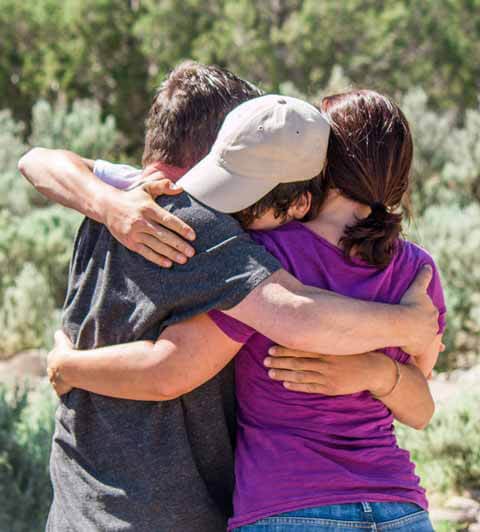
Effects of Untreated Toxic Relationships on Teens
Leaving an unhealthy or toxic relationship untreated can have a significant impact on a teenager's mental, emotional, physical, social, academic, and spiritual health. Here are some of the potential effects:
Emotional Health
- Co-occurring conditions: Living in an unhealthy or toxic relationship can lead feelings of fear, guilt, shame, anger, sadness, hopelessness, worthlessness, anxiety, and depression that can persist even after your teen leaves the relationship.
- Difficulty trusting others: After being in an unhealthy or toxic relationship, a teen may struggle to trust others in future relationships.
- Difficulty forming healthy relationships: Teens who have been in unhealthy or toxic relationships may struggle to form healthy relationships due to trust issues or negative self-image.
Physical Health
- Psychosomatic symptoms: Unhealthy and toxic relationships can also have physical effects on the body, including chronic stress, headaches, stomachaches, or muscle tension.
- Sleep disturbances: Unhealthy or toxic relationships can lead to sleep disturbances, such as insomnia or nightmares.
- Appetite changes: Stress and anxiety can cause appetite changes, including loss of appetite or overeating.
Social Health
- Difficulty building and maintaining healthy relationships: After your teen leaves a toxic or unhealthy relationship, they may struggle with forming and maintaining healthy relationships with peers, romantic partners, and family members.
- Social isolation: After leaving an unhealthy or toxic relationship, a teen may feel embarrassed or ashamed and may withdraw from friends and family.
- Lack of trust in others: After being in an unhealthy or toxic relationship, a teen may struggle to trust others in future relationships.
Financial & Occupational Health
- Difficulty with decision-making: Teens in unhealthy relationships may struggle with making decisions, which can affect their ability to choose a career path and plan for their financial future.
- Low motivation: Toxic relationships can lead to low motivation and lack of drive, which can impact a teen's ability to work and achieve financial independence.
- Limitations on career opportunities: If a teen has poor academic performance due to stress and anxiety, they may have limited career opportunities.
Intellectual Health
-
Poor academic performance: Teens in unhealthy relationships may struggle to focus on their studies or have difficulty completing assignments on time due to their emotional distress.
-
Limited perspective: Teens in toxic relationships may have a limited perspective on the world around them and struggle to see different points of view, hindering their intellectual growth.
-
Impaired problem-solving skills: After being in an unhealthy or toxic relationship, a teen may also struggle with problem-solving, as their emotional distress can interfere with their ability to approach problems in a logical and systematic way.
Spiritual Health
- Impaired identity development: Teens in unhealthy relationships may struggle to develop a strong sense of identity and may have a limited sense of self-worth.
- Difficulty with autonomy: These teens may have difficulty finding and pursuing their passions and goals, as they may prioritize seeking external validation and approval over their own desires and interests. This can make it difficult for teens to develop a sense of autonomy and independence.
- Lack of meaning & purpose: Toxic relationships can also affect a teen's sense of meaning and purpose in life which can impact their ability to take ownership of their lives and pursue their goals with confidence and purpose.
It's important for parents and caregivers to recognize the signs of unhealthy or toxic relationships and to seek appropriate support and resources for their teenager as quickly as possible to help them overcome these challenges.
Daring to set boundaries is about having the courage to love ourselves even when we risk disappointing others.
Early Intervention Is Important For Overcoming the Effects of Unhealthy Relationships in Teens
Early intervention refers to recognizing the warning signs of a toxic teenage relationship and acting before it gets worse. When you realize that your teen is struggling with an unhealthy relationship it’s important to get professional treatment before it becomes worse.
Early intervention and treatment for teens in unhealthy relationships can have several benefits for parents and families, including:
- Improved family relationships: When teens receive help to heal from an unhealthy relationship, they can begin to develop healthier ways of relating to others, which can improve family dynamics and relationships.
- Reduced stress: Toxic teenage relationships can create significant stress and strain on parents and the whole family. Early intervention and treatment can help reduce this stress and improve overall well-being.
- Increased independence: As teens develop emotional independence and learn to regulate their own emotions, they can become more independent and self-reliant, which can lead to greater success in other areas of life.
- Better academic performance: Toxic relationships can negatively impact academic performance, but early intervention and treatment can help teens develop better coping strategies and improve their academic performance.
- Greater sense of purpose and direction: With the help of therapy and other interventions, teens struggling with unhealthy or toxic relationships can develop a greater sense of purpose and direction in life, which can lead to a more fulfilling and satisfying future.
Overall, early intervention and treatment can help teens in toxic or unhealthy relationships build the skills and resources they need to thrive, while also benefiting their families and loved ones.
A healthy relationship will inspire you to be more of who you are, not require you to give up who you are.
Treatment Options for Teens in Unhealthy & Toxic Relationships
As a parent, it's important to know the different treatment options available to help your teen heal from toxic relationships. Some of the options include:
- Outpatient therapy: This is a form of therapy where your teen attends regular therapy sessions with a licensed therapist or counselor. The goal is to help your teen develop emotional skills, such as healthy communication, problem-solving, and coping strategies.
- Community-based programs: Community-based programs offer support and guidance to teens in a non-clinical environment. They may involve classes, group therapy sessions, recreational activities, and workshops focused on developing healthy social & interpersonal skills in your teenager.
- Residential treatment: Residential treatment programs offer a more intensive level of care for teens who need round-the-clock support and structure. These programs can provide a safe and secure environment for your teen to become emotionally independent and work through other behavioral issues.
- Wilderness therapy: Wilderness therapy programs use the great outdoors to help teens heal from emotional dependency and other emotional issues. These programs involve outdoor activities, group therapy sessions, and individual counseling to help teens develop new coping skills to develop self-reliance and emotional resilience.
Ultimately, the best option for your teen will depend on their individual needs and the severity of their relationship issues. It's important to work with a mental health professional to determine the best course of action.
What is Wilderness Therapy?
Wilderness therapy is a type of treatment for teens that uses nature, wilderness activities, and therapy as a means to address and heal the effects of a toxic teen relationship. Wilderness therapy takes full advantage of the outdoors and its ability to foster change. The outdoors provide teens with a contrasting environment to observe aspects of themselves that are often overlooked in traditional talk therapy.
As the leader in wilderness therapy, RedCliff Ascent is an effective treatment program for struggling teens aged 13-17. RedCliff Ascent’s safe, nurturing, and supportive environment provides teens with the skills they need to cope in a healthy and age-appropriate way.
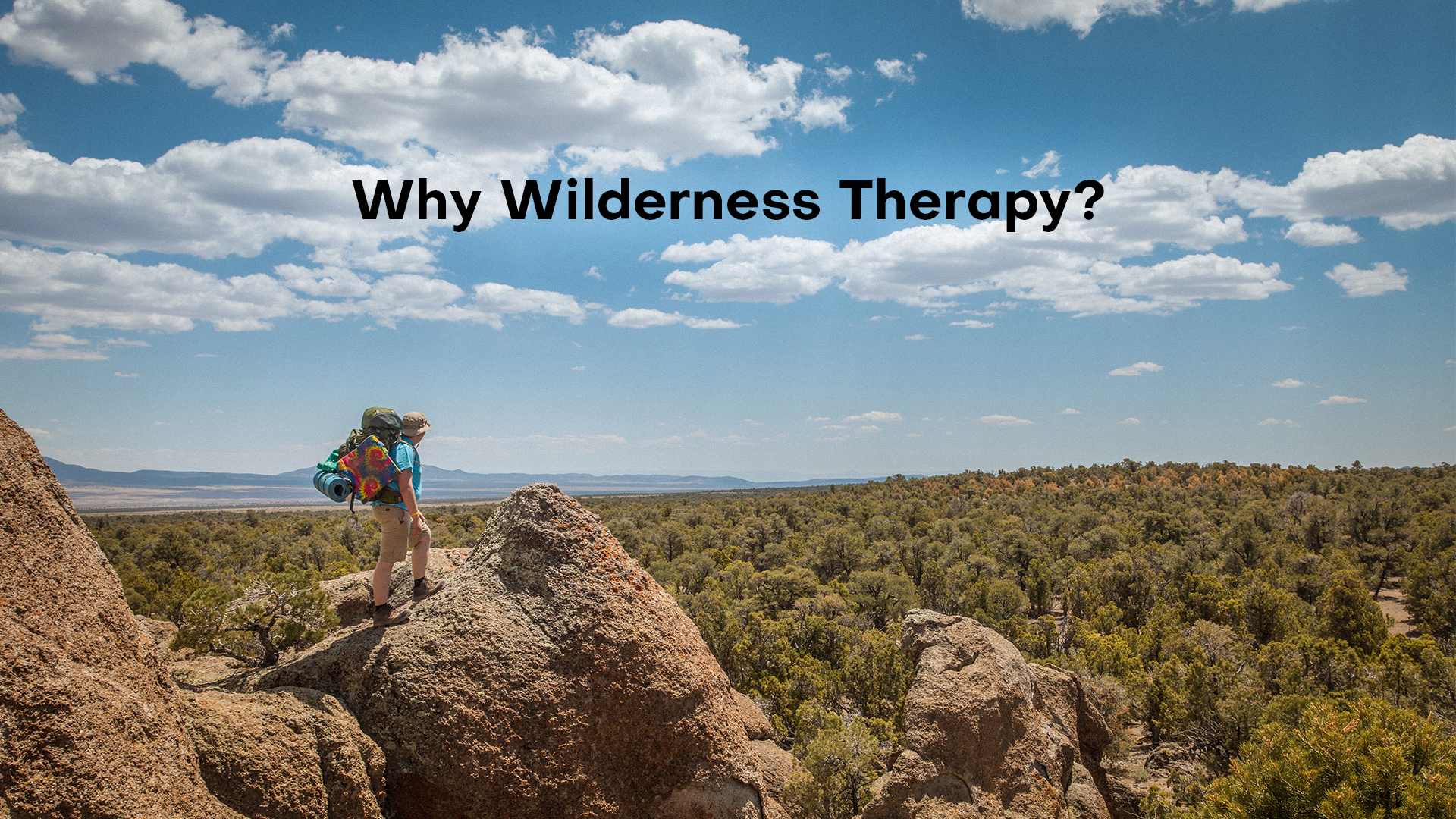
Benefits of Wilderness Therapy for Teens in Unhealthy Relationships
Being immersed in nature can have a profound impact on a teenager. It improves their mental, emotional and physical health. When combined with a trusted clinical approach, a therapeutic wilderness experience helps emotionally dependent teens develop self-reliance and emotional resilience.
Here are five specific benefits your family can expect to see while your teen is in wilderness therapy.
Unhealthy relationships are often a sign of underlying mental health issues, rather than the root cause. Research suggests that accurate mental health assessments can reduce the time needed for treatment by up to 20%, resulting in more effective outcomes for teens to form healthy relationships.
By exposing your teen to new and challenging experiences in nature, wilderness therapy can help your teen to break free from the negative behaviors associated with toxic relationships.
Adolescents who are deeply entrenched in an unhealthy relationship may find it difficult to stick with traditional forms of therapy and are more likely to discontinue treatment prematurely.
This lack of engagement can have negative effects on treatment outcomes, such as symptom relapse. However, we've found that teens who have been resistant to therapy in the past often become more involved and invested in the treatment process at our wilderness therapy program.
Our program at RedCliff Ascent is designed to help teens in toxic relationships learn and grow in a safe and supportive environment, where they can build the social and emotional learning skills they need to lead healthy and fulfilling lives.
If you're like most parents, you don't want to just get rid of your teen's unhealthy relationships. You want them to eventually become thriving, independent adults equipped with the skills necessary to succeed outside your home. These include:
Resilience - the ability to successfully adapt to challenging situations despite risk and adversity. Resilience helps us develop social competence, problem-solving skills, critical consciousness, autonomy, and a sense of purpose.
Leadership & Social Competence skills include qualities such as:
- responsiveness, especially the ability to elicit positive responses from others
- flexibility
- empathy
- communication skills
- and a sense of humor
Problem-solving skills - the ability to plan; to be resourceful in seeking help from others; and to think critically, creatively, and reflectively.
Autonomy is having a sense of one’s own identity and an ability to act independently and to exert some control over one’s environment, including a sense of task mastery, internal locus of control, and self-efficacy. The development of resistance (refusing to accept negative messages about oneself) and of detachment (distancing oneself from dysfunction) serves as a powerful protector of autonomy.
Sense of Purpose and a belief in a bright future, including goal direction, educational aspirations, achievement motivation, persistence, hopefulness, optimism, and spiritual connectedness.
98% of students report feeling connected to RedCliff's staff and one or more of their peers.
Upon completion of the program, 86% of parents reported improvement in their child's problems when compared to when they entered
12 months after treatment 86% of parents reported that their child's problems are improved since they completed treatment
How Does Wilderness Therapy Work?
For almost 30 years RedCliff Ascent has helped teens heal from unhealthy and toxic relationships and has conducted research since its inception. Through our research, we have identified seven principles that actually make a difference in helping your whole family recover from your teen's toxic relationships.
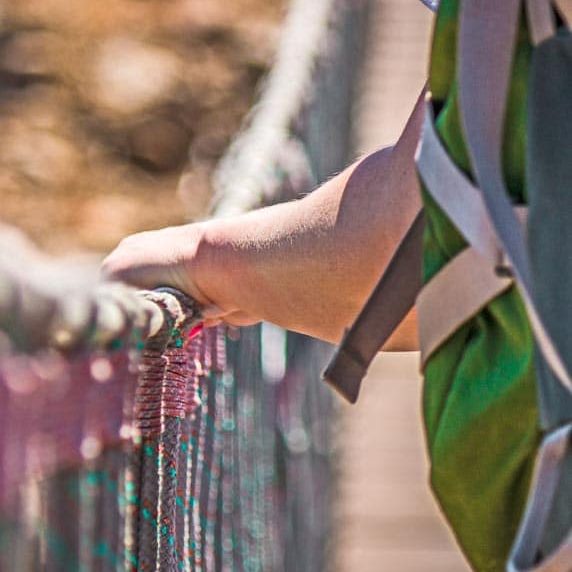
Healthy relationships are not only the foundation for growth and development but the launchpad for a successful future as well.
Your teen will live in a small group where social influence and feedback can be given and received in a safe and supportive way. This safe environment teaches your teen to build healthy relationships with both their peers and mentors. Having the skills to make and keep healthy relationships is essential to healing.
Treating teens who are recovering from toxic and unhealthy relationships is most effective when it is responsive to your teen’s specific struggles, strengths, personality, sociocultural context, and preferences. Our evidence-based treatment approach combines decades of research and clinical expertise to personalize a treatment plan that fits your teen’s unique struggles, characteristics, culture, and preferences.
One common theme in feedback from RedCliff Ascent’s students is that the challenging and novel environment provided them with a new perspective on their life and everything they knew before wilderness therapy.
Novel physical environments are a place of contrast that confront the world views your teen takes for granted. This helps your teen to see with a fresh perspective and see new options available to them. Growth occurs outside of the comfort zone and is accelerated in environments that push physical and mental limits.
Toxic teenage relationships affect everyone in your family. The healing process should apply to your whole family as well. Parental involvement and family support during treatment greatly increase your teen’s progress in treatment and helps them to adapt after treatment.
Communicating through handwritten letters provides a novel and powerful way to work through your family's struggles. You will also have access to our parent resource library, a weekly support call with other parents like you, as well as a weekly session with your child's therapist.
Your teen's toxic relationship affects every aspect of their life. The best treatment programs must heal every part of their life as well. They use a holistic and integrated approach so that every aspect of your teen's life can heal from the effects of an unhealthy relationship.
In our treatment program, mentors, therapists, doctors, nurses, academic directors, nutritionists, and everyone on your teen's treatment team will meet together each week to discuss how to best help your child.
At RedCliff Ascent, we understand the challenges of parenting a teenager who is struggling with emotional dependency issues. Our proven approach to wilderness therapy has helped hundreds of families find the path to healing and recovery. With our safe and nurturing environment, expert staff, and evidence-based therapies, we can help your teen develop the skills they need to manage their emotions and live a fulfilling life.
If you're ready to take the first step toward healing, we invite you to speak with one of our admissions consultants to learn more about how we can help your family. Contact us today and let us help you find hope and healing for your teenager.
Exclusionary criteria for RedCliff Ascent include:
- Teens younger than 13 and older than 17.5
- Teens with a physical limitation, i.e. wheelchair, crutches, etc.
- Teens with conditions that need intensive medical care or monitoring, i.e. eating disorders, diabetes, etc.
- Teens with a history of violence or sexual assault
- Teens with psychosis or schizophrenia
RedCliff Ascent does not take Medicare or Medicaid.
What Our Clients Say About RedCliff Ascent
I’d like to let you know how delighted I am with the RedCliff program and how impressive the hard work and dedication of the staff is...We feel that your program has very probably saved this child’s life and given us back our son.
- Kathy
We are very pleased with [our daughter's] self-improvements. A year ago we would not have dreamed all this to be possible! The path she head down was self-destruction. The impact of the RedCliff program is what turned [her] around. Our headstrong daughter was able to take stock of her past behavior, deal with her anger towards us, and begin to move in a more positive direction.
Even though sending her to RedCliff was a gut-wrenching decision, we know we did the right thing. We are thankful for the help and insight you gave to her and us.
- Clark and Irene
Since [our son] went to RedCliff we have all been transformed, but none as much as he. All of his teachers had nothing but good things to say about him. There have been no behavior issues at school this year. As a matter of fact, his teachers stated that they would like it if they had more students like Rob in their classes. I cried again at this meeting, but this time they were tears of joy.
- Julie

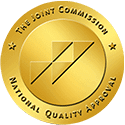
Backed by The Joint Commission which ensures programs adhere to the highest quality of clinical and medical practices.
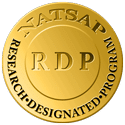
Designated as a NATSAP Research Program, showing our commitment to well-researched practices in our program.
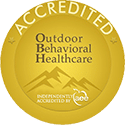
We are also OBH Accredited through the Association of Experiential Education (AEE) which regulates wilderness therapy practices.

Full member of the National Association of Therapeutic Schools and Programs (NATSAP), which ensure regulation of programs that serve children and adolescents.

RedCliff Ascent is fully licensed in the state of Utah.

Backed by the Association of Experiential Education (AEE) that ensures programs maintain appropriate professional behavior and risk management.

Founding member of the OBH Council (Outdoor Behavioral Healthcare Council).

Founding member of Choose Mental Health, guiding families with questions about mental health.
Every teen’s strengths and challenges are different. Complete the no-obligation teen assessment below to help us understand your family’s needs.
We respect your privacy and will never share your information.
We’re here to help - take the first step and contact us to see if wilderness therapy could be the path to healing for your family.
